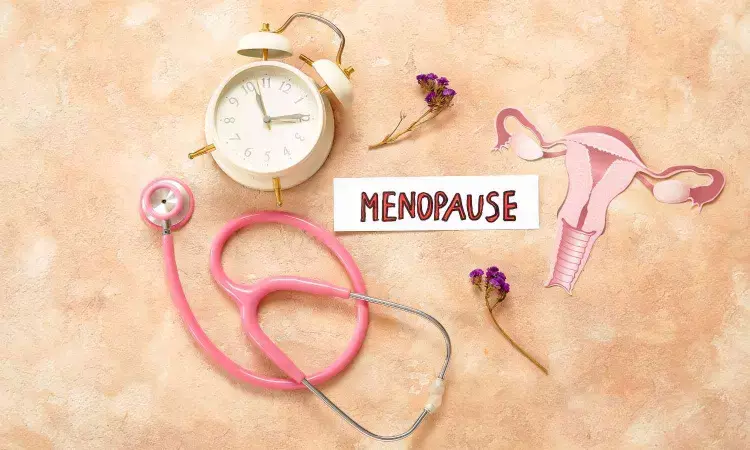- Home
- Medical news & Guidelines
- Anesthesiology
- Cardiology and CTVS
- Critical Care
- Dentistry
- Dermatology
- Diabetes and Endocrinology
- ENT
- Gastroenterology
- Medicine
- Nephrology
- Neurology
- Obstretics-Gynaecology
- Oncology
- Ophthalmology
- Orthopaedics
- Pediatrics-Neonatology
- Psychiatry
- Pulmonology
- Radiology
- Surgery
- Urology
- Laboratory Medicine
- Diet
- Nursing
- Paramedical
- Physiotherapy
- Health news
- Fact Check
- Bone Health Fact Check
- Brain Health Fact Check
- Cancer Related Fact Check
- Child Care Fact Check
- Dental and oral health fact check
- Diabetes and metabolic health fact check
- Diet and Nutrition Fact Check
- Eye and ENT Care Fact Check
- Fitness fact check
- Gut health fact check
- Heart health fact check
- Kidney health fact check
- Medical education fact check
- Men's health fact check
- Respiratory fact check
- Skin and hair care fact check
- Vaccine and Immunization fact check
- Women's health fact check
- AYUSH
- State News
- Andaman and Nicobar Islands
- Andhra Pradesh
- Arunachal Pradesh
- Assam
- Bihar
- Chandigarh
- Chattisgarh
- Dadra and Nagar Haveli
- Daman and Diu
- Delhi
- Goa
- Gujarat
- Haryana
- Himachal Pradesh
- Jammu & Kashmir
- Jharkhand
- Karnataka
- Kerala
- Ladakh
- Lakshadweep
- Madhya Pradesh
- Maharashtra
- Manipur
- Meghalaya
- Mizoram
- Nagaland
- Odisha
- Puducherry
- Punjab
- Rajasthan
- Sikkim
- Tamil Nadu
- Telangana
- Tripura
- Uttar Pradesh
- Uttrakhand
- West Bengal
- Medical Education
- Industry
Substance Use Linked to Increased Menopausal Symptoms in Women With and Without HIV: Study

Researchers have found in a study that substance use of alcohol, marijuana, tobacco, and opioids is independently associated with greater reported frequency of vasomotor symptoms, mood problems, and musculoskeletal complaints among women regardless of HIV status. A recent 12-year longitudinal study (2008-2020) provides insights into the potential role of substance use in the severity of menopausal symptoms. This study may serve as a guide for the need for targeted intervention and professional menopausal care for those affected. This study was recently published in the journal Menopause by Knittel A. and colleagues.
Menopausal symptoms, particularly vasomotor (e.g., hot flashes), mood disturbances, and musculoskeletal pain, increase in prevalence during the menopausal transition and can severely affect quality of life. The present investigation tests associations between various substance uses and frequency of menopausal symptoms among women living both with and without HIV.
The authors examined data from the WIHS, a longitudinal cohort study of 1,949 participants with biannual visits from 2008 to 2020. For this analysis, the authors selected self-reported menopausal symptoms and substance use: tobacco, alcohol, marijuana, crack/cocaine, and opioids. Logistic regression models were used to quantify the associations between each substance use and frequency of menopausal symptoms, adjusting for other variables such as HIV status, demographics, comorbidities, and trauma.
Results
• Participating women represented all three reproductive stages: early perimenopausal, late perimenopausal, and postmenopausal.
• By stage, the frequency of vasomotor symptoms ranged between 22% and 43%, mood symptoms from 18% to 28%, and musculoskeletal symptoms between 25% and 34%.
• The prevalence of substance use was high, with 72% reporting lifetime tobacco use, 75% heavy alcohol use, 73% marijuana use, 50% crack use, and 31% opioid use.
• Current heavy alcohol use was associated with a 22% increased odds of frequent vasomotor symptoms (OR: 1.22; 95% CI: 1.10‐1.37).
• Cumulative marijuana use was related to a 15% increased odds (OR: 1.15, 95% CI: 1.01‐1.32), and cumulative tobacco use was associated with a 6% increased odds (OR: 1.06, 95% CI: 1.01‐1.12).
• The likelihood of mood symptoms was 20% higher for current heavy use of alcohol (OR: 1.20, 95% CI: 1.04‐1.39).
• In the same way, current opioid use produced a 13% higher likelihood (OR: 1.13; 95% CI: 1.01‐1.25).
• In the case of current opioid use, the odds of musculoskeletal symptoms were raised by 11% (OR: 1.11, 95% CI: 1.00‐1.23).
Findings indicate both current and cumulative effects of substance use on the frequency of menopausal symptoms. The strong relationships between substance use and such symptoms as disturbances in vasomotor functioning, mood changes, and musculoskeletal pain point to the importance of obtaining a substance use history in the treatment of menopausal symptoms, particularly in women who have a history of heavy or chronic use.
Reference:
Dr Riya Dave has completed dentistry from Gujarat University in 2022. She is a dentist and accomplished medical and scientific writer known for her commitment to bridging the gap between clinical expertise and accessible healthcare information. She has been actively involved in writing blogs related to health and wellness.
Dr Kamal Kant Kohli-MBBS, DTCD- a chest specialist with more than 30 years of practice and a flair for writing clinical articles, Dr Kamal Kant Kohli joined Medical Dialogues as a Chief Editor of Medical News. Besides writing articles, as an editor, he proofreads and verifies all the medical content published on Medical Dialogues including those coming from journals, studies,medical conferences,guidelines etc. Email: drkohli@medicaldialogues.in. Contact no. 011-43720751


